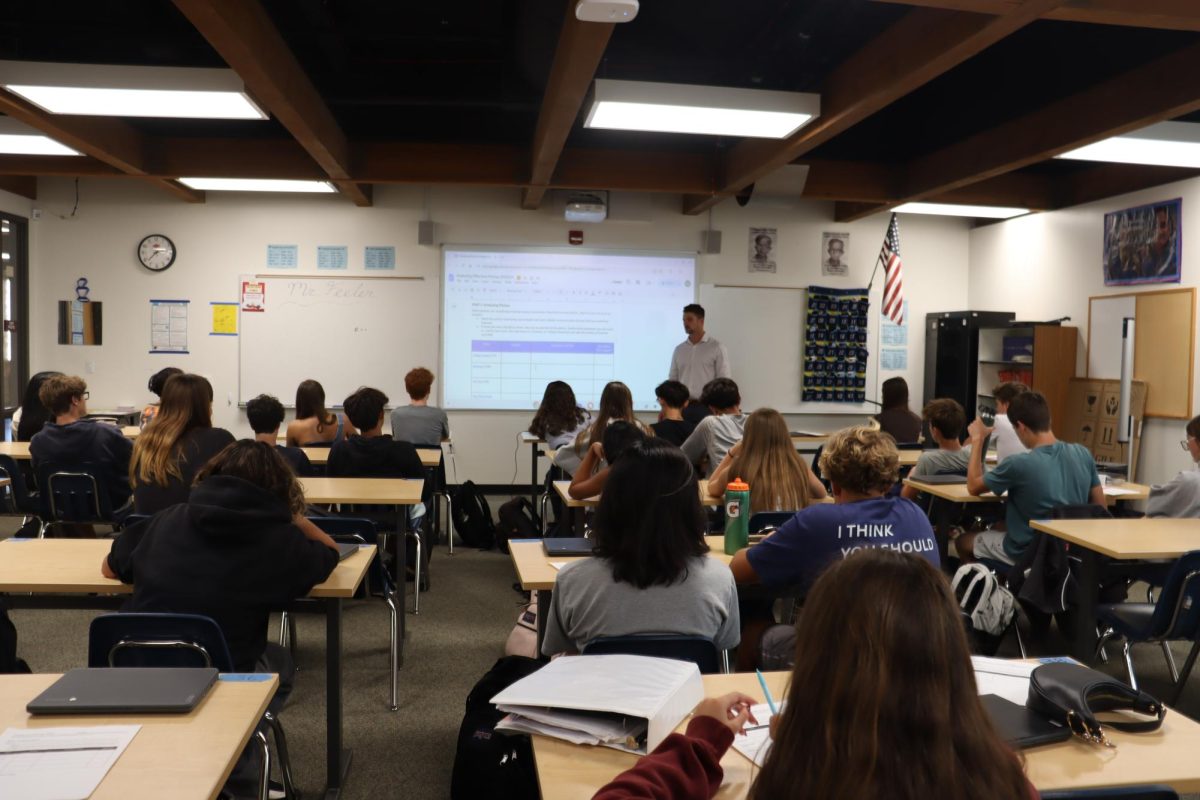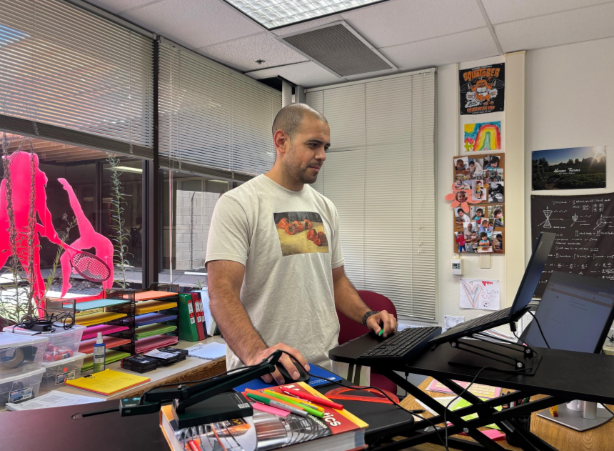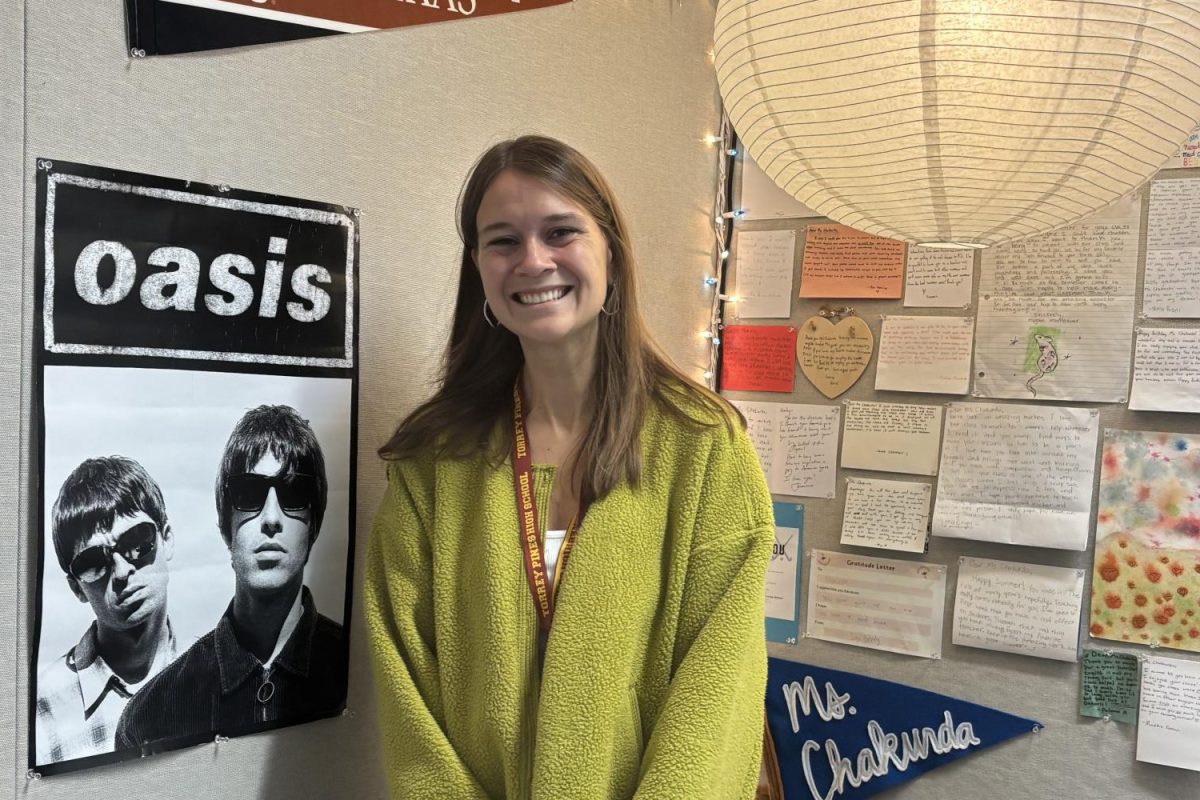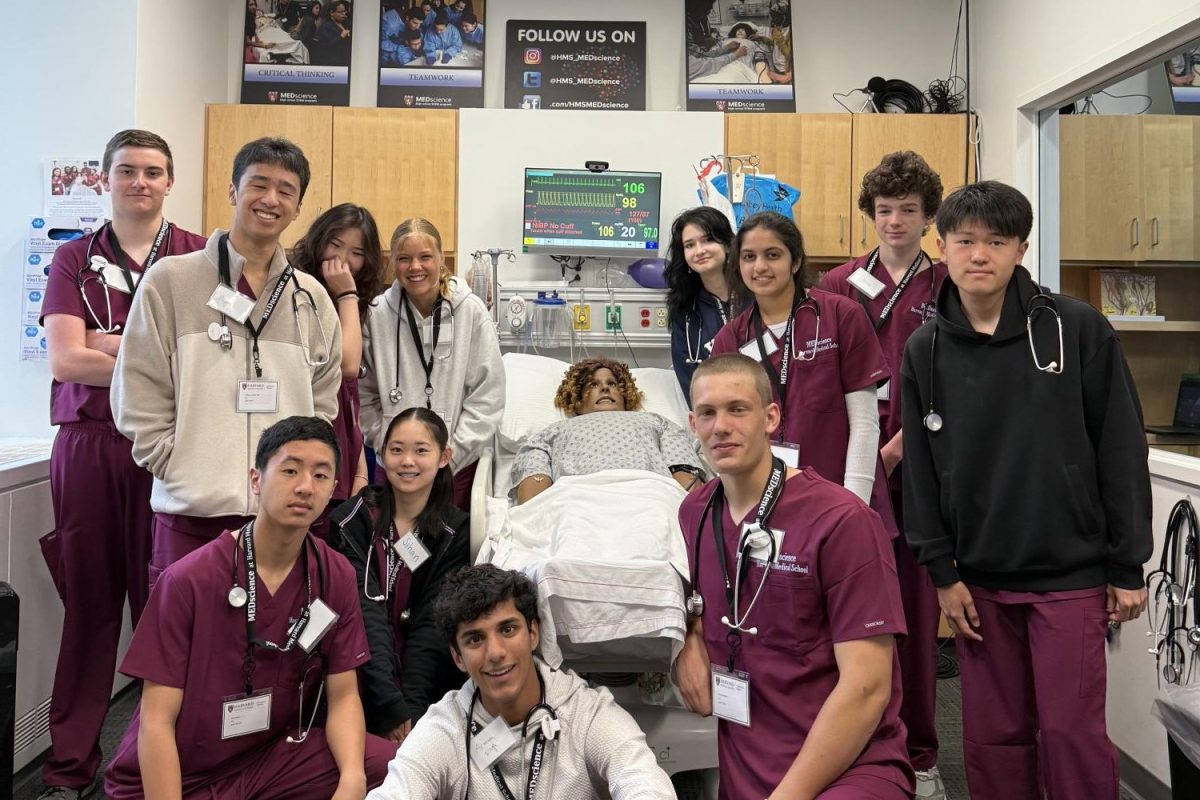For many students, summer was no different from the school year. Instead of heading to classes with Chromebooks in hand, they were clocked in at various jobs, balancing work schedules and responsibilities.
Each morning, Evelyn Fuqua (12) arrived at the beach bright and early to prepare for her job as a surf coach at Del Mar Surf Sessions. Her day began with setting up for a youth surf camp, unloading surfboards and wetsuits from the van. Coaching at the camp daily from 8 a.m. to 1 p.m., as well as teaching private lessons, Fuqua’s job brought its share of memorable moments.
“We saw a great white this summer and we see a lot of dolphins all the time,” Fuqua said. “The most memorable part was probably hanging out with the other coaches on the grass and going to lunch together.”
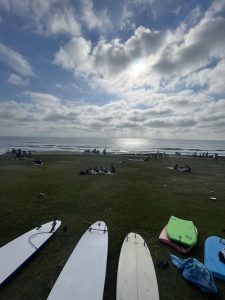
Fuqua coached kids ages five to 16 and attended the camp herself from ages six to 16.
“As a kid, I definitely didn’t realize how much labor the [surf coaches] were doing,” Fuqua said.
Sylvia Olson (12) also spent the summer with kids, working as a counselor at the YMCA.
“I went to YMCA camps when I was younger,” Sylvia said. “It’s amazing that the YMCA had that much of an impact on me… that I decided to go back and try to give the kids the same impact.”
Sylvia ran week-long dessert-making and skateboarding camps, walking kids to their programs in the mornings and “holding down the fort” at the end of the day.
“You’re constantly with the kids,” Sylvia said. “You eat lunch with them… you’re really just always on the lookout.”
Sylvia loves working with kids, especially those aged six to ten.
“They’re always the funniest,” Sylvia said. “You’re constantly laughing with them. I think [this job] would be really good for anyone who wants to be a teacher… it really does expose you to what you’re going to have to deal with.”
In her time as a counselor, Sylvia learned to be more patient, understanding, and to maintain a positive attitude — skills applicable to many other areas of her life.
Alex Weinstein (12) brought a unique contribution to the summer camp experience through his challah business.
“I ran a Cottage Food Operation, which is where you own a business out of your home,” Weinstein said. “Whenever people, and particularly over the summer a certain camp, would order an amount of challot, I would have to supply them.”
Weinstein started his challah business through the Advanced Business Management class at the school, selling at least 20 challot a week during the school year.
“When I first started over the summer, I didn’t have many sales and I almost had to shut down,” Weinstein said.
Unable to sell on campus, he focused on securing batch orders and eventually “landed on the camp.”
“Over the summer, we had a Shabbat ceremony at the camp,” Weinstein said. “I would come every Friday, and we would sing songs and say prayers together before we all shared the challot. I used to go to that camp, so it was fun seeing all of my old friends and the kids there.”
Weinstein handles all aspects of the business — braiding, baking, and packaging the challot — and occasionally hires friends to help. After learning to bake during the pandemic, he acquired abilities such as estimating weight without a scale and becoming skilled in the art of egg-whisking.
“The most rewarding aspect is just seeing happy customers every single week,” Weinstein said.
This school year, he will be operating his challah business on campus. Weinstein also worked nights selling electric bikes at the San Diego County Fair.
Many underclassmen sought summer jobs as well. Benicio Olson (10) worked in retail, selling merchandise during soccer tournaments. His responsibilities included ringing up customers, managing stock and answering questions.
“People don’t realize how much effort goes into setting up these stores,” Benicio said.
Benicio worked at a pop up store that was set up and taken down for each tournament. The location also managed inventory and shipped items to other locations, acting as a “distribution center.”
“I feel much more confident in retail,” Benicio said. “I feel like if I got a more permanent job, I’d be just fine.”
His experience has made him more conscious while shopping, particularly after dealing with customers who don’t return items to their proper places.
“I definitely realized that it is very annoying to have to reorganize a display of clothes,” Benicio said. “I’m putting things back now, exactly where I found them.”
Benicio was “happy to go into work each day” thanks to his bosses and managers, who created a positive workplace environment. Through customer interactions, some of whom used “choice words” when upset, he learned a key lesson.
“The customer is not always right, but you still have to treat them with patience and respect,” Benicio said.
While some students chose to work in retail, others chose to work in another popular industry: food service. This summer, Baylin Tsai (10) landed her first job, working as a cashier for a candy business at the San Diego County Fair. She found the job through her Intro to Business class last year, and took on responsibilities such as managing the cash register, organizing the candy and handling customer orders.
“Customer service was a challenge, because sometimes people are kind of rude,” Tsai said. “It made me have so much more appreciation for all the workers.”
Tsai’s experience behind the cash register has taught her to be more patient as a customer.
“When I go to the highlands, if someone’s not having a good day, I give them grace now… I understand, because I was one of those people too,” Tsai said.
Though this job was not directly related to future career interests, Tsai learned the importance of skills such as customer service, communication, and patience.
“I think just being on the other side as a worker rather than a customer is a really different experience,” Tsai said. “It causes a lot of growth for people… it’s good to get high school jobs just for learning life skills.”
Weinstein echoed this sentiment.
“It’s very important to learn how to deal with people, both from the customer side of things, and from the employee side of things,” Weinstein said. “You have to deal with so many different people working any type of job. I definitely recommend a retail job or a fair job where you meet the whole population of people.”
Jim Anthony, who teaches Intro to Business, Work Experience and Internship, values high school jobs for similar reasons.
“There’s far too much emphasis on [teenagers] having [a] career choice,” Anthony said. “The experience they get from just learning how to work hard, how to take direction, to look for opportunities and to expand all those opportunities is going to transfer to whatever they end up doing in college and their career.”
Anthony always held at least one job during his time as a student, often in roles similar to those that students take on today.
Weinstein sees the biggest challenge of summer jobs compared to year-round positions as “getting hired in the first place”, and finding employers that are open to hiring students who may leave after a few months.
“There’s a lot of people that want to find part-time work. There’s not a lot of work that’s part time,” Weinstein said.
Part-time work is a valuable opportunity for students to explore and understand the reasons behind their job preferences.
“If I had the opportunity to be a camp counselor again at the YMCA, I would definitely do it,” Sylvia said.
Fuqua had similar sentiments about coaching surf camps.
“I love the job a whole lot, so it’s been very rewarding to be a part of it and have this community,” Fuqua said. “I’m going to work here every summer until I am too old.”
As some students continue their work during the school year and others look forward to resuming jobs next summer, one thing is clear: these experiences have reshaped how they see the world around them. From witnessing the effort behind childhood summer camps to navigating customer interactions, these students are returning to school not just with stories, but with growth and a newfound appreciation for the complexities of everyday work.


